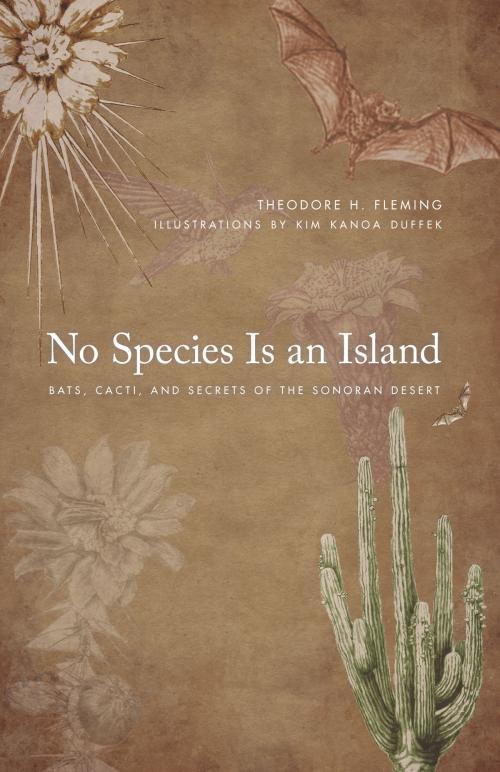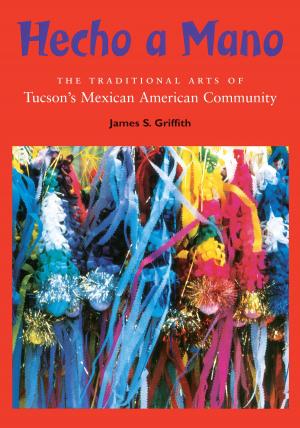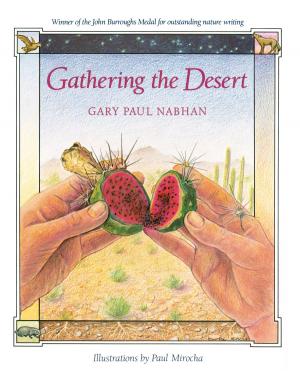No Species Is an Island
Bats, Cacti, and Secrets of the Sonoran Desert
Nonfiction, Science & Nature, Nature, Environment, Ecology| Author: | Theodore H. Fleming | ISBN: | 9780816537556 |
| Publisher: | University of Arizona Press | Publication: | September 5, 2017 |
| Imprint: | University of Arizona Press | Language: | English |
| Author: | Theodore H. Fleming |
| ISBN: | 9780816537556 |
| Publisher: | University of Arizona Press |
| Publication: | September 5, 2017 |
| Imprint: | University of Arizona Press |
| Language: | English |
In the darkness of the star-studded desert, bats and moths feed on the nectar of night-blooming cactus flowers. By day, birds and bees do the same, taking to blooms for their sweet sustenance. In return these special creatures pollinate the equally intriguing plants in an ecological circle of sustainability.
The Sonoran Desert is the most biologically diverse desert in the world. Four species of columnar cacti, including the iconic saguaro and organ pipe, are among its most conspicuous plants. No Species Is an Island describes Theodore H. Fleming’s eleven-year study of the pollination biology of these species at a site he named Tortilla Flats in Sonora, Mexico, near Kino Bay.
Now Fleming shares the surprising results of his intriguing work. Among the novel findings are one of the world’s rarest plant-breeding systems in a giant cactus; the ability of the organ pipe cactus to produce fruit with another species’ pollen; the highly specialized moth-cactus pollination system of the senita cactus; and the amazing lifestyle of the lesser long-nosed bat, the major nocturnal pollinator of three of these species.
These discoveries serve as a primer on how to conduct ecological research, and they offer important conservation lessons for us all. Fleming highlights the preciousness of the ecological web of our planet—Tortilla Flats is a place where cacti and migratory bats and birds connect such far-flung habitats as Mexico’s tropical dry forest, the Sonoran Desert, and the temperate rain forests of southeastern Alaska. Fleming offers an insightful look at how field ecologists work and at the often big surprises that come from looking carefully at a natural world where no species stands alone.
In the darkness of the star-studded desert, bats and moths feed on the nectar of night-blooming cactus flowers. By day, birds and bees do the same, taking to blooms for their sweet sustenance. In return these special creatures pollinate the equally intriguing plants in an ecological circle of sustainability.
The Sonoran Desert is the most biologically diverse desert in the world. Four species of columnar cacti, including the iconic saguaro and organ pipe, are among its most conspicuous plants. No Species Is an Island describes Theodore H. Fleming’s eleven-year study of the pollination biology of these species at a site he named Tortilla Flats in Sonora, Mexico, near Kino Bay.
Now Fleming shares the surprising results of his intriguing work. Among the novel findings are one of the world’s rarest plant-breeding systems in a giant cactus; the ability of the organ pipe cactus to produce fruit with another species’ pollen; the highly specialized moth-cactus pollination system of the senita cactus; and the amazing lifestyle of the lesser long-nosed bat, the major nocturnal pollinator of three of these species.
These discoveries serve as a primer on how to conduct ecological research, and they offer important conservation lessons for us all. Fleming highlights the preciousness of the ecological web of our planet—Tortilla Flats is a place where cacti and migratory bats and birds connect such far-flung habitats as Mexico’s tropical dry forest, the Sonoran Desert, and the temperate rain forests of southeastern Alaska. Fleming offers an insightful look at how field ecologists work and at the often big surprises that come from looking carefully at a natural world where no species stands alone.















